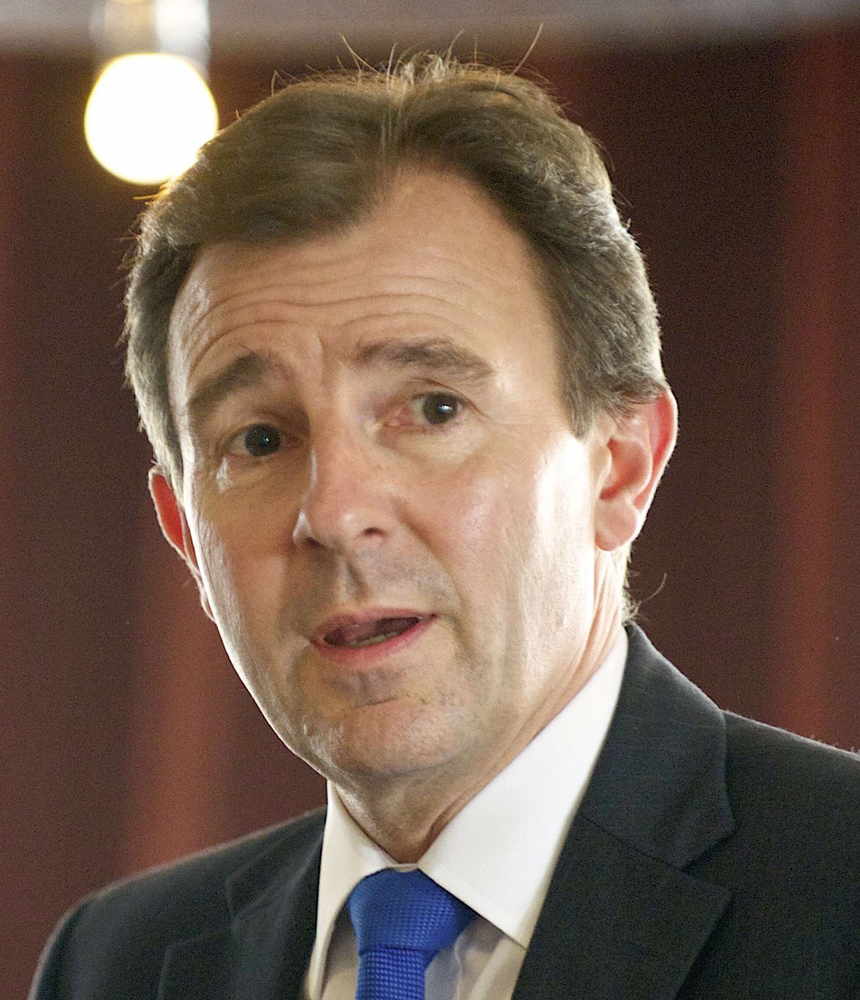The one-off payment is revealed in the States annual reports and accounts released on Wednesday.
Treasury Minister Alan Maclean denied that Ms Rowley had been given a golden handshake and said that the payment had been made due to a clause in her contract.
Ms Rowley, who was appointed in 2010 and earned one of the highest States salaries of up to £150,000 annually, resigned last July amid rumours of tensions within the department and between the Treasurer and then Treasury Minister Philip Ozouf.
At that time questions were asked in the States, but Chief Minister Ian Gorst maintained that Ms Rowley’s decision was based on a desire to spend more time with her family in the UK and that her decision should be respected. Senator Gorst also denied during the questioning that a ‘golden handshake’ payout had been arranged.

Ms Rowley, who was previously head of finance at Shropshire Council, was appointed to the post in 2010 by former States chief officer Bill Ogley.
Earlier this year, following a request under freedom of information legislation, the JEP was told that details of a ‘compromise agreement’ between the States and Ms Rowley would be included in the States accounts. Such an agreement traditionally includes a severance payment and requires the individual not to pursue a claim or grievance procedure.
Asked yesterday why the States had agreed to award the payment to Ms Rowley on her resignation, the Treasury Minister said that the decision had been reviewed by the Comptroller and Auditor General and was found to be within States policy.
Senator Maclean added that it was his understanding that the former Treasurer’s contract had had to be complied with and that the States had no choice. ‘It was part of the contractual obligation – we did not have the ability not to pay out,’ he said. ‘But it was not a golden handshake.’
The States accounts also show that last year staff costs went up from £346 million to £364 million, including a four per cent negotiated pay increase.
During the year the number of civil servants earning over £100,000 a year increased from 195 to 232. More than a hundred are doctors and consultants within the Health Department, 23 work in the Chief Minister’s Department, 16 at Ports of Jersey, 15 at Home Affairs and nine at Air Traffic Control.

Twelve staff at Education, Sport and Culture earn more than £100,000, seven of whom are either head teachers, deputy head teachers or Highlands managers.
The highest paid, earning more than £310,000, works for the Judicial Greffe or are Crown appointments and personal contract holders. Of two posts awarded a salary of nearly £290,000, one is within the Law Department and the other is based in the Treasury Department.
The highest-paid accounting officer is chief executive John Richardson, whose salary last year increased to £210,000.
Other highly paid individuals during 2014 included Economic Development chief officer Mike King (£145,000), former Education chief officer Mario Lundy (£145,000), Health chief officer Julie Garbutt (£185,000), States police chief Mike Bowron (£140,000), ports chief executive Doug Bannister (£140,000) and Transport and Technical Services chief officer John Rogers (£140,000).

STATES departments last year spent £25 million more than income from taxesand duties, according to the annual accounts released today.
Departmental revenue spending – including £364 million in staff costs – totalled £674 million, up from £636 million in 2013, but although income of £649 million was 1.9% higher than the previous year, it was 5.5% below budget and failed to cover the costs.
The final audited figure is in line with previous warnings made by the Council of Ministers over lower-than-expected personal tax take and lower profit in the finance sector.
Steps have already been taken to cut public-sector costs and earlier this month all public-sector employees were being invited to apply for voluntary redundancy.
Treasury Minister Alan Maclean told a press conference yesterday that although the States’ balance sheet was ‘strong’, income was not rising at the pace it had done historically.
‘The balance sheet is all about our investments, accrued during the years of plenty, such as the Strategic Reserve – spare cash that is being actively managed,’ he said.
‘Our strategic investments have been increasing in value and outperforming the markets, which gives us flexibility when dealing with challenges. But expenditure is continuing to rise significantly faster – and that’s the problem.
‘A lot of that expenditure from 2016 to 2019, totalling £57 million, can be attributed to investment in health and education.

‘The measures we are currently taking, such as voluntary redundancy, the pay freeze and restructuring of the public-sector are aiming to bring that expenditure down and balance the books.’
States Treasurer Richard Bell explained that the six per cent rise in revenue expenditure, to £674 million, included a number of one-off requirements, like the 4% pay award to public-sector workers (totalling £15.2 million), costs of the Jersey Independent Care Inquiry (£7 million) and a £3.6 million grant to the National Trust for Jersey to purchase the Plémont headland.
He also warned that taking into account depreciation – an accounting method of allocating the cost of a tangible asset over its useful life – last year’s £25 million operating deficit amounted to £82 million, and was forecast to reach £125 million by 2019.
The accounts also show that taking into account Social Security, special funds and other expenses, the States was left with a net surplus of £6 million, compared to £279 million in 2013.
Mr Bell said that although States investments had continued to outperform the market during 2014, gains had not been as good as in the ‘record-breaking’ previous year.






